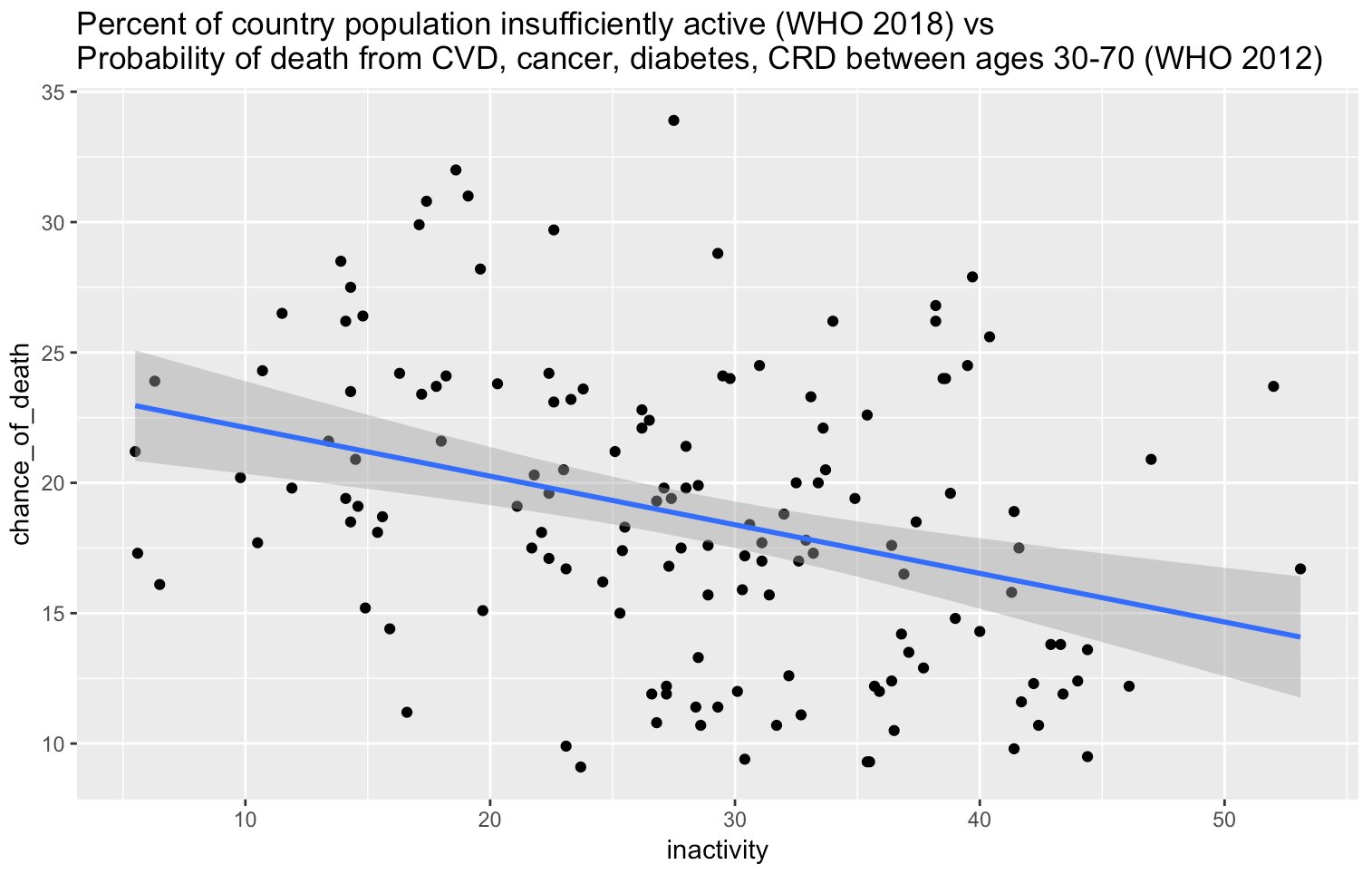September 17, 2018
Briefly
- Are we being misled by precision medicine? New York Times
- When people search for a phrase that does not have natural informative results, it’s easy for manipulators to control the results. Take, for example, “did the Holocaust exist?” danah boyd on search and media manipulation
- Should the Norfolk (UK) police be using a predictive model to decide whether a burglary is worth spending effort on? IEEE Spectrum is somewhat more negative than I would be.
- Interesting piece at Slate about a story relating social media and hate crimes in Germany
- Correlations can be confusing. This, from David Hood on Twitter, shows that countries where more people get the recommended amount of exercise have more deaths from heart disease, cancer, lung disease, diabetes. That’s also what trends over time would say. Presumably the (real) benefits of exercise are smaller than the benefits of wealth and modern health care, but it’s a neat example. Note that this isn’t chance correlation in small samples with many variables to choose from, unlike the famous spurious correlations website

Thomas Lumley (@tslumley) is Professor of Biostatistics at the University of Auckland. His research interests include semiparametric models, survey sampling, statistical computing, foundations of statistics, and whatever methodological problems his medical collaborators come up with. He also blogs at Biased and Inefficient See all posts by Thomas Lumley »